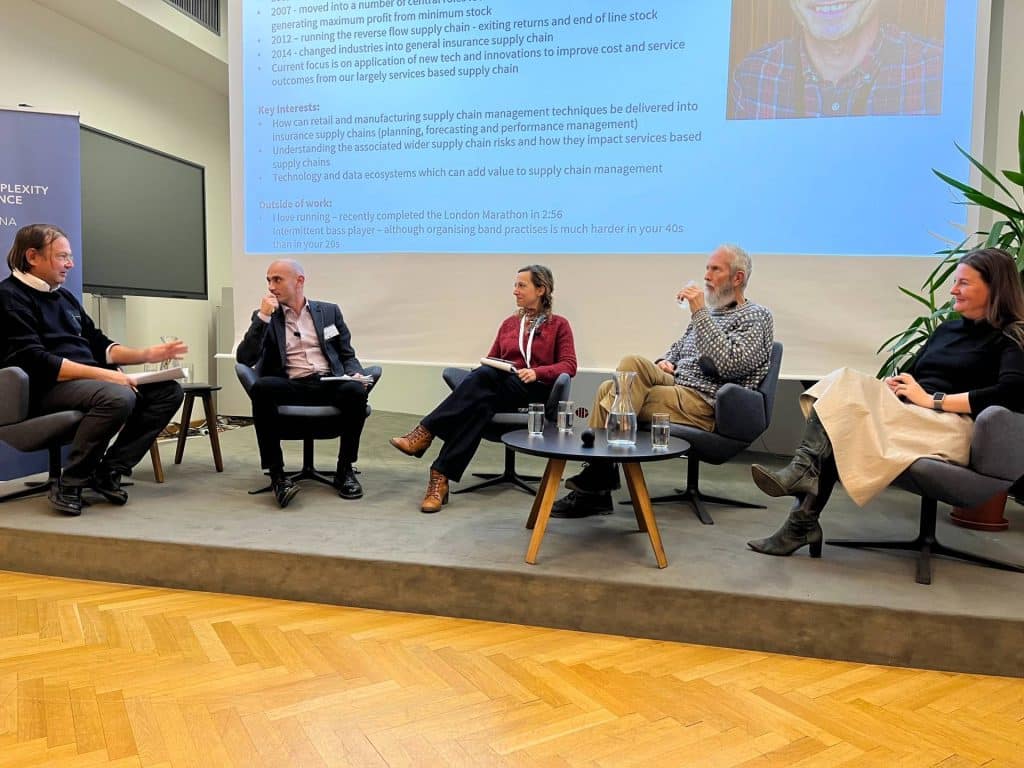On Nov 29, Complexity Science Hub Vienna (CSH) invited international experts to discuss the resilience of supply chains. The researchers were united in their Christmas wish: more data.

We are currently facing multiple crises: Inflation crisis, energy crisis, democracy crisis, migration crisis, political crisis, information crisis, not to mention the Ukraine crisis and the climate crisis. “The next possible crisis we should be prepared for is that of supply chains. We have already seen the first signs that a supply crisis is possible,” Stefan Thurner from Complexity Science Hub states.
Small disruptions can grow big
Supply chains can grow to thousands and thousands of firms, where small disruptions are able to cascade across global networks. Therefore, it is crucial to increase their resilience. “To really understand supply chain resilience, we need to understand economics,” explains Doyne Farmer, of the University of Oxford and External Faculty at CSH.
Avoiding energy bills from skyrocketing
For this reason, it is essential to get data. This is immensely relevant right now, since a very concrete, current example shows us the importance of making supply chains more resilient: at the moment, people’s energy bills are suddenly skyrocketing due to problems in the supply chain, Farmer says. Bottlenecks like these could be avoided in the future.
Furthermore, if we had been able to predict how the pandemic would affect supply chains, we could have started producing masks sooner, according to Farmer. Data-driven, interdisciplinary models create entirely new opportunities in this process.
New picture of the world
“Now, for the first time, we are seeing supply chains at firm level, and that opens up a total new picture of the world,” Thurner states. This research approach is still at an early stage, but at a CSH workshop this week alone, international researchers presented several new methods that allow us to identify the weak spots of the economy and ensure that supply chains will remain intact, Farmer says.
Christmas wish: more data
For the future, the scientists would like to see one thing above all: more data and more transparency. „Visibility can now be increased through means that were previously not possible. The use of predictive tools, or AI algorithms, has made digital supply chain surveillance possible on a scale that was not previously possible,” Alexandra Brintrup, of the University of Cambridge says.
The data needed to do that has to be very accurate, whereby details matter a lot. Besides, new methodologies, like using phone data, government and tax data play a crucial role. “Science will depend on the ability of governments to get the data and host it in a secure way,” Thurner says.
Getting this idea into people’s heads
Karin Doppelbauer, Member of the National Council, puts this in a governmental perspective: “I don’t even think there is a vision from governmental perspective on how to manage the data so that it is used transparently and the security of the data is maintained. Additionally I think the third question is what we want to do with the data.” Governments sometimes look at these new technologies in a way that is more about what they can restrict, rather than seeing the opportunities, she continues. “First of all, we have to think about how we can get this issue into the hearts and minds of the people,” because, at the moment, Doppelbauer does not see that happening in Austria. “We should paint a picture that shows the possibilities,” she said.
Challenge for industry
Companies , moreover, face another conflict, namely whether data on supply chains should be public or not. “The answer is yes and no. Resilience in supply chains is a competitive advantage. It is important [for companies] to protect its competitive advantage and resilience and not let anyone see them. The flipside – as we saw during the pandemic – is that we can only understand what is coming down the line if we collaborate to have resilience in multiple supply chains,” Byron McGill from Aviva Insurance states.
In any case, there is agreement on one thing: in the future, the resilience of supply chains will play an important role – in politics, business and science.


